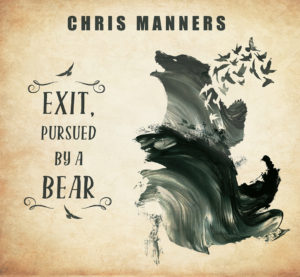Originally printed in Tykes’ News, Spring 2019
Folk music discovered me just before The Sex Pistols; by the time they arrived, I was lost in a world of angular tunes and collarless shirts. I started to go to folk clubs while at university, so there are three that I could be my first. The Heritage, the University club; I was president in my final term, following June Tabor and Tony Rose at a distance of years. Or The General Elliott in South Hinksey, a mile down a footpath and over a footbridge, where Dave Townsend of the Mellstock Band and Andy Turner of Magpie Lane were regulars.
In the end, though, it’s an easy choice. The club where I did my first, nervous floor spot in the summer of 1977, and where I went whenever I was home during the vacations — was in Barnsley: Monday nights at the Wheatsheaf, Town End.
It’s a by-pass now. But before the road scheme the pub was a square three-storey building in blond brick, on the corner of Racecommon Road. It was the sort of local boozer that feels forbidding, the landlady scowling behind the bar, the regulars eyeing up the newcomer suspiciously. But once your face became familiar, the welcome was warm and genuine.
The club room was on the first floor, large, long and narrow; door at one end, musicians at the other. Nothing so luxurious as a stage, but a good performing space. Lots of smallish tables, with stools and chairs grouped round; it’s hard to remember precisely, but I’d guess capacity would be about 50 or 60 . . . and most weeks it was nearly full.
The basic pattern repeated each month: a national-name and a local guest alternating with singers’ nights. Two songs apiece for floor singers.
Memories? Vin Garbutt in full flight. I loved his total commitment to each song, but even more I loved — was amazed by — the surreal monologues that introduced them, usually longer than the song itself; in later years he shifted the balance back towards the music, yet could always be as effortlessly funny as anyone I’ve ever seen. Roy Bailey, still with a day job at Sheffield University, drawing tears with The Testimony of Patience Kershaw before ending the evening with Rolling Home, a full house belting out the chorus while he sung a descant over the top. Monologue John Barclay, giant of a man to the nine-stone teenager I then was, barking ‘Not elephant’s leather like this!’ at the end of his piece about the angel falling to earth with an injured wing, bringing the secret of Yorkshire pudding with her.
It wasn’t a club that depended on professionals, though Dave Burland would pop in regularly, and Derek Elliott was often there, occasionally acting as MC. Robin Garside might turn up every now then, and a child prodigy called Patrick Walker.
The core was a group of half a dozen regulars: John Booker, who knew six songs, all of them thumping good chorus numbers for starting the night. Ray Padgett, still often seen up and down the county. Alan ‘Tas’ Lucas and Mick Dunk. And a woman whose name I can no longer recall (to my shame), with a clear-as-a-bell voice, who played guitar and sang ‘Take your time my lovely old man . . . as long as you’re able to wind up my clock.’ There are several good recipes for a club, but this still seems one of the best: a handful of regular performers, with a repertoire familiar enough for strong chorus singing.
I realise, as I write this, something that confirms the choice of Barnsley as my first folk club. It was where I got to know all the old war horses of the circuit: Black Velvet Band, Fathom the Bowl, Prickly Bush, General Taylor. They’re not sung as often these days, but should someone strike up with one, the response in the chorus will be immediate, tuneful . . . and loud. Which — for all that I’m a song-maker and perform my own material — is what makes the folk world special: the sense that we’ve not just come to goggle at someone in a spangly shirt, but we’re all here together, part of a family. A community.

